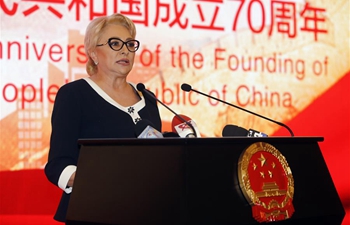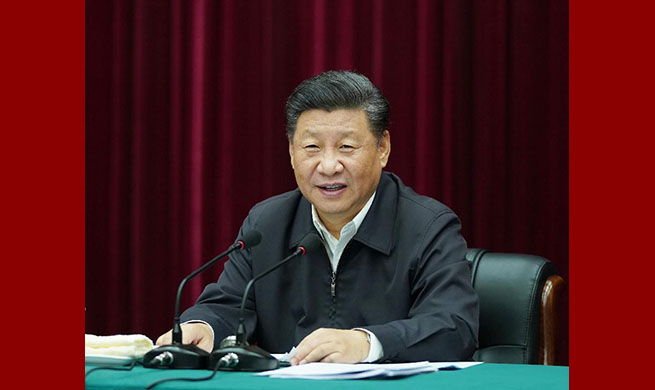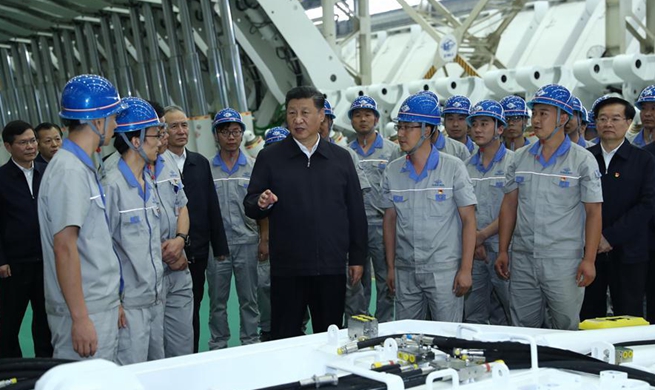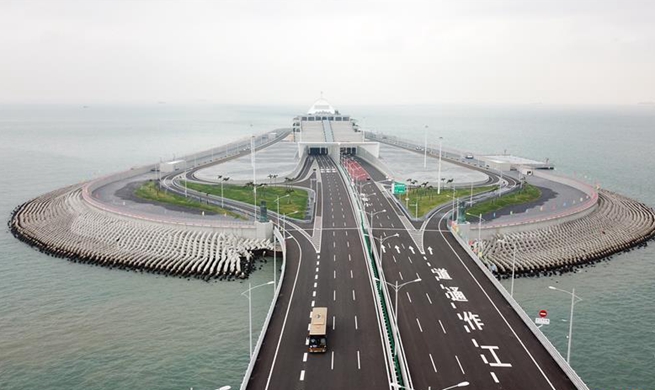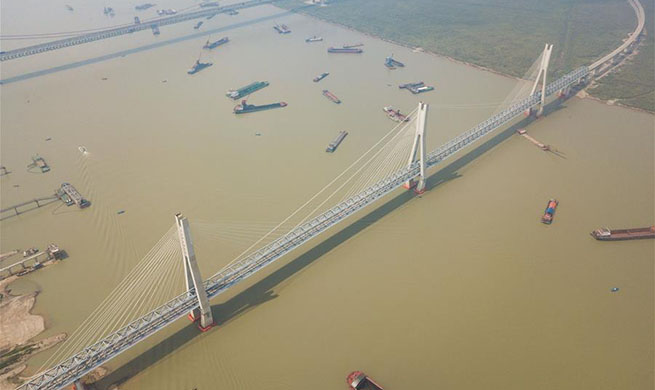TOKYO, Sept. 20 (Xinhua) -- The Japanese government on Friday said that following South Korea's request, it will enter into bilateral talks over its tighter export controls, with the decision from Japan coming after Seoul filed a complaint with the World Trade Organization (WTO) last week.
"There is no change in our position that Japan's trade measure is in line with WTO rules. We will fully explain that," Japan's Trade Minister Isshu Sugawara told a press briefing on the matter Friday.
In July, Japan started implemented tougher export controls on three key materials required by South Korean companies to produce semiconductors and display panels.
Japan at the time said that Seoul had undermined trust with Tokyo, although the actual motive, political insiders have said, is connected to an ongoing wartime labor dispute between both countries.
In talks with South Korea, Tokyo is likely to argue that Seoul referring the case to the WTO was unjust and baseless.
Seoul for its part maintains that the move by Japan to tighten its export controls was politically motivated and a discriminatory move against South Korea, not one underscored by national security concerns, as Japan had stated.
If the matter cannot be resolved in the bilateral consultations, Seoul has indicated it will seek a dispute settlement panel be arranged by the WTO.
In a related move, the Japanese government on Wednesday described South Korea removing Japan from its preferential list of trading partners as an "extremely regrettable" move that required more explanation.
According to Japan's top government spokesperson, Tokyo believes it has not received sufficient explanation from Seoul regarding, not just the details of its revocation from the list, but also the thinking behind the move.
The move by South Korea on Wednesday, follows a similar step by Japan on Aug. 28, when it removed South Korea from its "white list" of preferential trading partners.
The South Korean government had previously urged Japan not to proceed with its removal from its white list, which it estimated could have a negative bearing on more than 1,000 items in key industries spanning the auto and petrochemical sectors.
But tensions between both countries are continuing to escalate, with bilateral ties sinking to their lowest level in recent years owing to a wartime labor dispute spilling over into a tit-for-tat trade spat.
South Korea, for its part, has decided to take Japan off of its own "white list" of trusted trade partners and announced tighter restrictions for importing coal ash and some waste recycling materials from Japan.
The South Korean government also announced its decision to scrap the General Security of Military Information Agreement, or GSOMIA with Japan on exchanging classified military information as the tit-for-tat dispute escalates.
Japan said that the decision by South Korea was "disappointing" and that the present security environment had been "completely misread" by South Korea.
Japan said it would continue to ask South Korea to "reconsider" its decision not to extend the GSOMIA.

